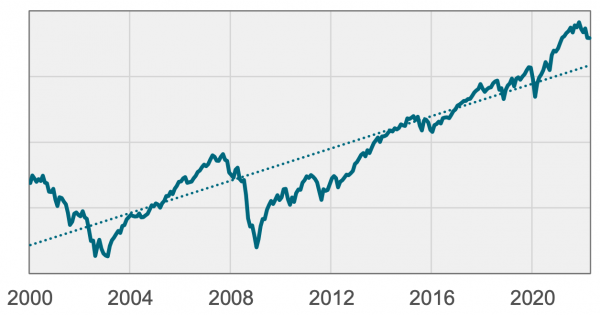
Planning & budgeting
Saving & investing
KiwiSaver
Tackling debt
Protecting wealth
Retirement
Home buying
Life events
Setting goals
Money tracking
Plan your spending with a budget
Getting advice
Studying
Get better with money
What pūtea beliefs do you have?
How to build up your emergency savings to cover unexpected costs
How to save your money
How to start investing
Find a financial adviser to help you invest
Your investment profile
Compound interest
Net worth
Types of investments
Term deposits
Bonds
Investment funds
Shares
Property investment
How KiwiSaver works and why it's worth joining
How to pick the right KiwiSaver fund
Make the most of KiwiSaver and grow your balance
How KiwiSaver can help you get into your first home
Applying for a KiwiSaver hardship withdrawal
How to use buy now pay later
What you really need to know before you use credit
How to get out of debt quickly
Credit reports
Know your rights
Pros and cons of debt consolidation
Credit cards
Car loans
Personal loans
Hire purchase
Student loans
Getting a fine
What happens if I start to struggle with moni?
How to build up your emergency savings to cover unexpected costs
Cryptocurrency
How to protect yourself from fraud and being scammed
About insurance
Insurance types
Insuring ourselves
Wills
Enduring powers of attorney
Family trusts
Insuring our homes
Losing a partner
Redundancy
Serious diagnosis
How to cope with the aftermath of fraud
Separation
About NZ Super – how much is it?
When you’re thinking of living in a retirement village
How to plan, save and invest for retirement
Manage your money in retirement
Find housing options in retirement
Four approaches to spending in retirement
Planning & budgeting
Saving & investing
How to build up your emergency savings to cover unexpected costs
How to save your money
How to start investing
Find a financial adviser to help you invest
Your investment profile
Compound interest
Net worth
Types of investments
Term deposits
Bonds
Investment funds
Shares
Property investment
View all
KiwiSaver
Tackling debt
How to use buy now pay later
What you really need to know before you use credit
How to get out of debt quickly
Credit reports
Know your rights
Pros and cons of debt consolidation
Credit cards
Car loans
Personal loans
Hire purchase
Student loans
Getting a fine
What happens if I start to struggle with moni?
View all
Protecting wealth
How to build up your emergency savings to cover unexpected costs
Cryptocurrency
How to protect yourself from fraud and being scammed
About insurance
Insurance types
Insuring ourselves
Wills
Enduring powers of attorney
Family trusts
Insuring our homes
Losing a partner
Redundancy
Serious diagnosis
How to cope with the aftermath of fraud
Separation
View all
Retirement
Home buying
17 April 2025
Reading time: 4 minutes
Posted by Tom Hartmann,
0 comments

Looking back at the first quarter of the year, investing in KiwiSaver turned quite bumpy, with most of us seeing our balances fall. We’re told not to worry, but it’s challenging, since our brains are hardwired to avoid anything that feels like a loss. Here’s how to ride the ups and downs of being an investor in KiwiSaver.
Investments go up and down, since they are worth more or less on the market at any given time. Think of them like owning some slices of a few oranges in a supermarket. Sometimes oranges will be selling for more, sometimes they’ll be selling for less, and your segments go up and down in value with them.
Remember, your KiwiSaver balance is not what you have, it’s what your investments are worth at a given time.
The drops we see are just paper losses to be sure. No actual money is being lost – unless we sell our investments, switch funds and make those losses real. That’s when we truly lose money, and we miss out on any future recovery.
Once again, the advice of the experts is to keep calm and carry on – provided you are in the right type of fund for you. Once you’ve set your course (and decided to get on this rollercoaster), you can sit tight and even enjoy the ride a bit. It’s terrifying, but full of potential.
It also helps to remember that if you keep contributing and buying into KiwiSaver, lower prices in the markets mean that you can buy more assets. They’re on sale after all. (Okay, so maybe not so terrifying.)
This graph shows how close to 3,000 shares from 48 countries around the world have fared over the last 22 years. You can see the dotted trend line heading upwards.

There have been two huge falls due to the dot com bubble and the Global Financial Crisis, and you can see how things have been falling lately as well. But we are still well above the line.
Who knows where we’re headed? (Beware of those who claim to know with certainty.)
Much of share prices depend not only on the data, but how investors feel about that data. Despite all the ups and downs, there’s no reason not to be optimistic for the decades to come.
As we mentioned above, what can give you peace of mind is having your strategy set… which lets you forget all about it. If you are looking for good results over the medium and longer term, you can ride out the ups and downs – as long as you’ve got your risk settings right.
This means you have made an active choice of which type of fund is right for you, and you choose your KiwiSaver fund from that type. It’s simple with our KiwiSaver fund finder.
Then, once you’re on the ride, you really don’t need to hop off midway!
A final note about the government’s contribution to our KiwiSaver, which you may remember is 25 cents for every dollar we put in, which means you can get up to $260 every single year.
To get the maximum, it averages out that you need to contribute $20 a week throughout the year (which ends in June). Now is a great time to make sure you’re on track to get your $260.
The sooner you do, the more painless it is, since leaving it to the last minute in June feels expensive and hurts more. When it rolls around, you won’t find yourself short the $1043 you need – you’ll have that money tucked away, all ready to get the government boost.
That extra money is bound to help our balances grow toward the future, no matter how steep the rollercoaster is in the short term.
Hold on tightly, and try to enjoy the ride if you can.
Use verification code from your authenticator app. How to use authenticator apps.
Code is invalid. Please try again
Don't have an account? Sign up
Or log in with our social media platforms


A free account gives you your very own space where you can save your tools and track your progress as you get ahead.
Or sign up using Google:



Comments (0)
Comments
No one has commented on this page yet.
RSS feed for comments on this page | RSS feed for all comments